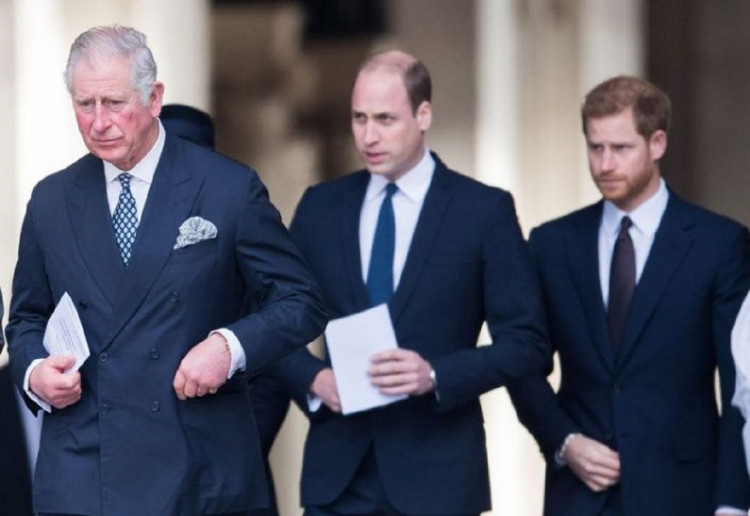In a recent turn of royal family dynamics, King Charles has reportedly rebuffed an attempt by Prince Harry to secure a holiday invite to Sandringham Castle, amidst escalating tensions and accusations. Sources (via Globe magazine) close to the palace reveal that Harry, in a bid to mend fences, used "emotional blackmail" during a conversation about a controversial new book, but the King remained unmoved, leaving Harry and his wife, Meghan, seemingly sidelined.
During the contentious call, which also touched upon the explosive claims in the book "Endgame" by Meghan's friend Omid Scobie, Harry is said to have appealed to his father's familial bonds. The Duke of Sussex reportedly implored, "Don't you want to see your grandchildren," in an effort to persuade Charles to extend an olive branch for the holiday season. However, the King reportedly attributed the ongoing family rift to the actions of Harry and Meghan, who he perceives as a central figure in the continuing scandal.
"Endgame," particularly its Dutch-language version, has stirred controversy by naming Charles and Princess Kate as the royals who allegedly expressed concerns about the skin color of Harry and Meghan's children. Despite the immediate retraction and destruction of the Dutch copies, the damage was done, adding fuel to the already blazing fire of royal family discord. Scobie's apparent confusion over the inclusion of the names in the Dutch edition has done little to quell the uproar.
Despite these challenges, the King appears resolute in his stance, undeterred by what he views as ongoing manipulation attempts by the Sussexes. A palace insider asserts that Charles is "not concerned" about the allegations of racism, confident in his public and private record to speak for itself. The source emphasized that the King is "fully" supportive of Princess Kate and dismissive of the claims as mere fabrications by Harry and Meghan, who are perceived to be leveraging royal connections for their survival and success in Hollywood.
As the royal family grapples with these internal conflicts and public scrutiny, the broader implications for their relationships and public image remain to be seen. The situation underscores the complex interplay between personal family matters and public perception, especially for figures as scrutinized as the British royal family.
King Charles Sets Terms for Talks
Reports have surfaced about the monarch's singular condition for an in-person reconciliation with the Duke of Sussex. The strained relationship, which has seen little communication since Prince Harry and Meghan Markle stepped back from royal duties in 2020, now hinges on a critical demand from King Charles: thorough documentation of any discussions.
The lack of trust between father and son has reportedly led King Charles to insist that any meeting be "done properly with aides and officials present, and everything documented with minutes taken." This approach, aimed at ensuring transparency and preventing misinterpretations, underscores the deep divisions and wariness that have come to define their relationship. According to the UK's Daily Express, the King's insistence on having his "aides and officials" present during these talks is not just a procedural requirement but a necessity to have witnesses to the conversation, a testament to the fragility of their current rapport.
While it was reported that Prince Harry, King Charles, and Prince William did sit down for peace talks at one point, the discussions reportedly did not yield the desired reconciliation, and the royal family members have had minimal interaction since. This standoff reflects the complexities of their relationship, marred by public scandals, personal grievances, and the overwhelming pressure of royal expectations.
As the British monarchy navigates this tumultuous period, the potential for a face-to-face meeting between King Charles and Prince Harry, albeit under strict conditions, offers a glimmer of hope for mending ties. However, the stipulation for detailed documentation and the presence of aides and officials speaks volumes about the level of distrust and the challenges ahead.





